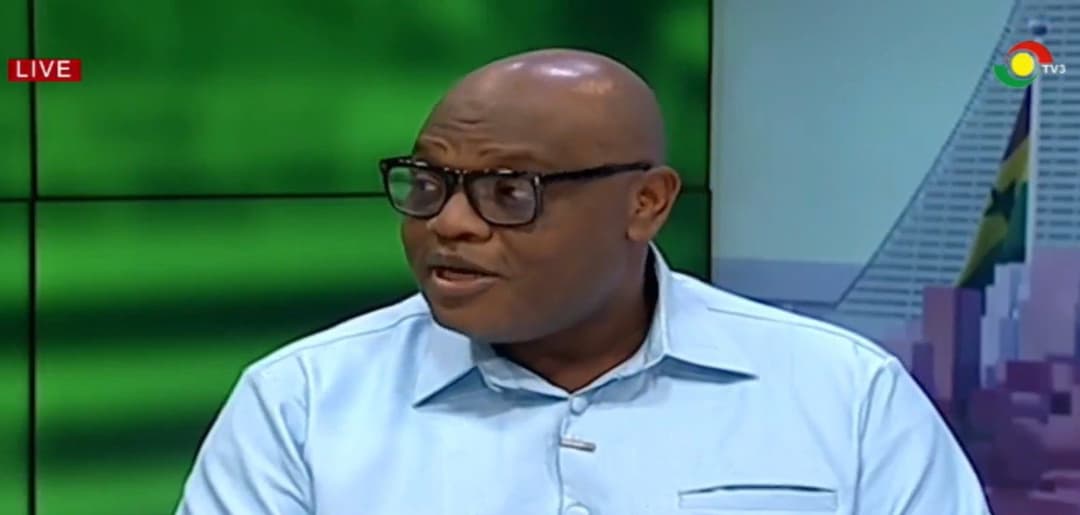adverts
This is Not the Time to Attack People in the Market – GIPC CEO Tells Abossey Okai Spare Parts Dealers
The Chief Executive Officer of the Ghana Investment Promotion Centre (GIPC), Simon Madjie, has appealed for restraint in the escalating tensions between Ghanaian traders and foreign nationals engaged in retail trading, stressing the need for education and collaboration rather than confrontational enforcement.
Speaking on TV3’s Business Focus programme on Monday, September 8, 2025, Mr Madjie noted that the issue was not merely about the enforcement of trade laws but about ensuring that stakeholders fully understand the provisions of the GIPC Act, 2013 (Act 865), which bars non-citizens from engaging in petty trading, hawking, and selling goods in markets and stalls.
“The issue is not about enforcement of our laws but about understanding what is happening in the market,” he explained. “We should urge calm. This is not the time to lose control of ourselves and attack people in the market.”
adverts
He assured that the Presidency, the Ministry of Trade, and other government agencies were actively working to address the recurring disputes over trade restrictions while balancing Ghana’s commitments under ECOWAS protocols and other international agreements.
Mr Madjie’s comments follow renewed hostilities at Abossey Okai, Accra’s biggest spare parts hub, where the Abossey Okai Spare Parts Dealers Association recently closed more than 150 shops belonging to foreign nationals. The Association insists it is enforcing Section 27(1) of the GIPC Act, accusing foreigners of flouting the law and distorting local competition.
The move has reignited national debate over trade liberalisation, local protectionism, and foreign participation in Ghana’s retail sector.
The Ghana Union of Traders’ Associations (GUTA) has also intensified pressure on the government, warning that local traders will not sit idly by while foreigners dominate retail spaces across the country.
In an interview on Onua FM’s Yen Nsempa, GUTA’s National 1st Vice Chairman, Mr Clement Boateng, expressed frustration over what he described as successive governments’ failure to enforce existing trade regulations.
“It will get to a point where local traders will take the law into their own hands and start closing the shops of foreigners operating in Ghana. As citizens, we also have the right to enforce the laws as long as they exist. But we do not want to do that because it creates chaos,” he warned.
Mr Boateng also accused landlords of fuelling the crisis by renting stalls to foreigners at inflated prices, leaving local traders unable to compete.
“Stalls have become so expensive. When a landlord quotes a price for a local trader, the next day you find the space occupied by a foreigner who has paid a higher price. By law, landlords are not supposed to rent out property to foreigners for petty trading. If the government had imprisoned one or two landlords, it would have deterred others,” he lamented.
While GUTA has called for urgent enforcement by security agencies, Mr Madjie urged a different approach — one rooted in public education, dialogue, and collaboration between stakeholders such as the GIPC, the Ministry of Trade, the Ministry of Foreign Affairs, GUTA, agribusiness players, and the media.
He emphasised that clarity on which sectors are reserved for Ghanaians and which are open to foreign participation was key to avoiding confrontation and protecting livelihoods.
The latest standoff highlights the long-standing tensions in Ghana’s retail trade sector, where local traders argue that unregulated foreign participation undermines indigenous entrepreneurship.
Click the link Puretvonline.com | WhatsApp Channel to join the WhatsApp channel
GOT A STORY?
Contact/WhatsApp: +233243201960 or email: manuelnkansah33@gmail.com


